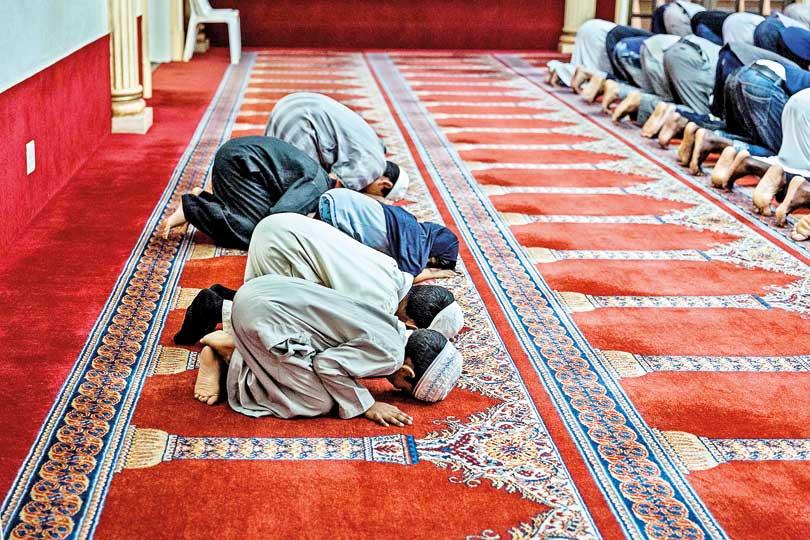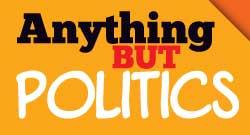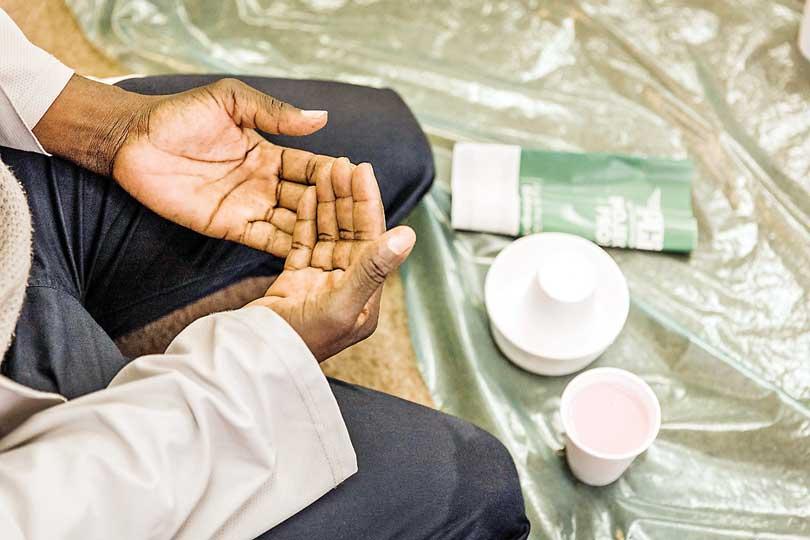Reply To:
Name - Reply Comment

Federation of Civil Society Organizations in Kattankudy called for a meeting of the Muslim Moulavis assigned to various Mosques in the area and requested them to preach against the dangers of radicalization during the month of Ramadan

 Arabization of the local Muslims finally made way for the emergence of militants who blew themselves up on April 21 causing immeasurable damage to the country and its people. Only after the serial bombings that rocked the nation on April 21, some people, including the likes of top notched politicians, came to the realisation that a segment of the Muslim community was increasingly embracing the puritanical form of Islam or Wahhabism along with Arab culture. Change among the Muslims is more visible and pronounced in the eastern province.
Arabization of the local Muslims finally made way for the emergence of militants who blew themselves up on April 21 causing immeasurable damage to the country and its people. Only after the serial bombings that rocked the nation on April 21, some people, including the likes of top notched politicians, came to the realisation that a segment of the Muslim community was increasingly embracing the puritanical form of Islam or Wahhabism along with Arab culture. Change among the Muslims is more visible and pronounced in the eastern province.
One, visiting the east, finds ghettoization of Muslims in non-contiguous areas. Kattankudy stands out among these areas with concentrations of Muslim populations in the eastern province. The township, buzzing with business activities, comprises by-lanes named in Arabic along with other languages. It is famous within the Muslim community as the area with the largest number of Arabic schools that produce the bulk of Muslim preachers or Moulavis in Sri Lanka.
Mohamed Zahran, the preacher who led the National Thowheed Jamath (NTJ) that committed the terror strikes on Easter Sunday, hailed from this area. He had decamped from the area a couple of years ago after he embroiled himself in violent clashes with other Muslim sects over ideological differences, though.
Velvetithurai in the Jaffna district was viewed with disdain because it was the birthplace of LTTE Leader Velupillai Prabhakaran. The people of Kattankudy now fear whether theirs will also be scorned in the similar manner since it is the hometown of Zahran.
The bombing incidents did huge physical damage. It is measurable and recoverable. However, the qualitative damage, inflicted by it, cannot be measured. It created a wedge between the communities and instilled fear and suspicion in their minds. The ripple effects of the attacks are still visible. The fear psychosis that gripped the nation is yet to disappear. Despite repeated assurances about safety, parents are reluctant to send their children to school.
According to reports from Kattankudy, traders still find it difficult to resume their business operations due to tension between the communities. Muslim traders are reluctantly to move out of their areas to do business. Likewise, there is low attendance of Tamil workers in the Government offices and private institutions located in the Muslim areas.
Against the backdrop, the responsibility lies with the community leaders of either side to take initiatives to bring about sustainable harmony.
De-radicalization is a topic that surfaced in the immediate aftermath of the serial bombings. In what appeared to be a response to call for de-radicalization of local Muslims, the Federation of Civil Society Organizations in Kattankudy called for a meeting of the Muslim Moulavis assigned to various Mosques in the area and requested them to preach against the dangers of radicalization during the month of Ramadan. The meeting took place at the office of the Federation located on S.P. Lane, Kattankudy on Monday.
The civil society leaders asked the clerics to devote their sermons after Jumma prayers every Friday to wean away people, particularly youths from their radical views. They were categorically asked to preach that terrorism and suicide bombing could not be justified whatsoever in terms of Quranic teachings. Alongside, the clerics were requested to guide people, by citing versions in Quran, how to live with people of other faiths in the country in general and in the area in particular.
Hot on the heels of the terror strikes, the call for de-radicalization came even from the Muslim politicians and the religious authorities. Sri Lanka Muslim Congress (SLMC) Leader Rauff Hakeem stressed the need for his community to have some introspection to where the fault line is.
Likewise, All Ceylon Jamiyyathul Ulama (ACJU) requested the Muslim ladies to do away with their Niqab voluntarily as a gesture of goodwill for ongoing moves to de-radicalize.
The damage caused by the terror strike did not spare Muslims. It has resulted in the Muslims being unable to carry out their trade and other normal livelihood activities. This will prevail upon the Muslims at large to throw their weight behind the security establishments to curb terrorism.
The security forces made a lot of arrests based on tip offs from the Muslims themselves. Though not involved in terrorism directly, there are still people harbouring radical thoughts. The community has a responsibility to identify them and apply some correctional measures.
The Federation of Civil Society in Kattankudy has also passed on some information to the security authorities about a preacher with radical views, affiliated to the organization called ‘Dharul Athaar Adh Dhaviyyah’.
This cleric is reported to be preaching against democracy calling it a system with elements against the teachings of Islam.

The Easter Sunday bombings have warranted Sri Lanka to be eternally vigilant. Economically, the tourism sector suffered the biggest blow. In fact, tourism was the most visible growth area after the war was over in 2009. At that time, the annual tourist arrivals remained around 500,000 in 2009. However, it rebounded with great force after the war ended. Last year, tourist arrivals stood at 2.8 million. The target for this year was three million arrivals.
In a move to boost the industry which received the full force of the terrorist attack, the Government announced a relief package in terms of debt moratorium, duty free concessions etc. The tourism industry is the country’s third largest source of foreign exchange, followed by foreign remittances and apparel exports respectively.
The Government proposed to announce a moratorium by the Central Bank to institutions or individuals in the tourism sector, on a case-by-case basis. The moratorium period should be till March 31, 2020, in respect of outstanding credit facilities (both capital and interest) granted to institutions or individuals in the tourism sector as at April 18, 2019.
The importation of certain security equipment to be installed at the tourist hotels will be exempted from tax. Accordingly, the hotels can import equipment such as handheld metal detectors, walk-through metal detectors, baggage X-Ray inspection equipment and vehicle scanners.
The package was approved by the Cabinet at its weekly meeting on Tuesday morning. At the same meeting, it became apparent once again that President Maithripala Sirisena and Prime Minister Ranil Wickremesinghe have not yet reconciled their differences.
The two leaders were involved in a spat over the proposal by Port and Shipping and Southern Development Minister Sagala Ratnayake to increase port tariffs. The President flatly rejected the move despite repeated attempts by the Prime Minister to justify the proposed increase.
The two leaders do not see eye to eye not only on such matters but also in countering terrorism that has gripped the country. The President is unable to get rid of Inspector General of Police (IGP) Pujith Jayasundara because of lax cooperation from the government led by the United National Party (UNP).